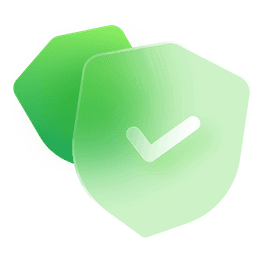If you're like most people, you use your smartphone for a lot of different things. You might use it to check email, browse the web, or watch videos. You probably also use it to access your bank account, shop online, or track your fitness progress. Whatever you do on your phone, you want to be sure that your data is safe and secure. Here are what mobile security is and why you should care about it:
What is mobile security?
While mobile devices—including smartphones and tablets—are useful because they can go with us everywhere we go, this convenience comes at a cost: mobile devices are often less secure than computers because mobile operating systems (such as iOS or Android) haven't been around as long as desktop operating systems. Mobile devices carry a lot of private information. Think about all the things you keep on your mobile device: emails, contacts, photos, sensitive documents. If someone else got hold of your mobile device, would you be concerned? You should be! It's important to take steps to protect your mobile devices and the data on them. Are you doing everything you can to protect mobile security? Here is a broaden blog post where we explained What Mobile Application Security Is, you can check it out if you'd like to learn more about it.
Why you should care about mobile security?
You use mobile devices more than ever before, and mobile malware is expected to grow by 146% next year. You can check out the 2021 Mobile Malware Statistics to learn how common mobile security breaches are.
Mobile devices are very convenient and useful tools that carry important information such as emails, passwords, photos and contacts of your friends and family members. A mobile device can also contain personal pictures you do not want others to see. Unsecured mobile phones could lead to identity theft and security breaches of your sensitive data if they fall into the wrong hands. Cyber criminals may steal your mobile phone and remotely access all the information stored on it without your knowledge or permission.
Here are some tips to keep your mobile security in place:
1- Turn off broadcasting when not in use
This is the first mobile security measure. When using mobile devices, you need to know that they regularly broadcast data packets that hackers can exploit and use to obtain information about you. When you're not using mobile devices, turn off these broadcasts like Bluetooth, Wi-Fi, and GPS so your sensitive information isn't available.
2- Don't download mobile apps from unknown sources
When downloading mobile applications, do so only from reputable mobile app stores like Google Play and the Apple Store for iOS . Do not click "download" without carefully reading the permissions requested by mobile application developers. Be especially careful of mobile apps that request permission beyond what they need in order to operate, including access to things like your contacts list, location , microphone , camera , etc.
Some mobile viruses can easily spread through mobile apps. In these cases, mobile security is critical in order to keep mobile devices from becoming infected when downloading mobile applications from unknown sources. You can use our cybersecurity awareness service called S4E:Education to increase your knowledge in cybersecurity as well as mobile security.
3- Keep your phone up-to-date
One of the best ways to protect yourself against mobile malware is to keep your phone updated with the latest version of Android or iOS . These updates are often released automatically over-the-air to ensure you're always using the most secure version available for your mobile device. You can also update manually by searching for an app called "FOTA" on the Google Play store , which will allow manual downloads of software updates for many Android phones.
4- Keep your device safe when using public WiFi networks
Public WiFi networks (e.g. coffee shops and restaurants) pose a significant mobile security risk. It is easy for an attacker to set up their own WiFi hotspot that looks like, say, your local Starbucks and then trick mobile devices into sending them information or even connect directly to the mobile device's cellular connection (which can result in very expensive mobile data charges). To avoid such attacks:
- Verify the network name
- Use a Virtual Private Network (VPN) when on public wifi
- Avoid file sharing over public wifi
5- Have password or PIN code to keep intruders out
When mobile devices are lost or stolen, it is no secret that mobile cybersecurity is an important factor in preventing access of personal information within the device. This can help prevent identity theft and other cyber crimes. Password-protecting mobile devices helps keep your data safe! You can also password protect mobile apps you don't want others to access, like your social media accounts which store all your sensitive photos. Some apps even have fingerprint identification for added mobile security.

control security posture
